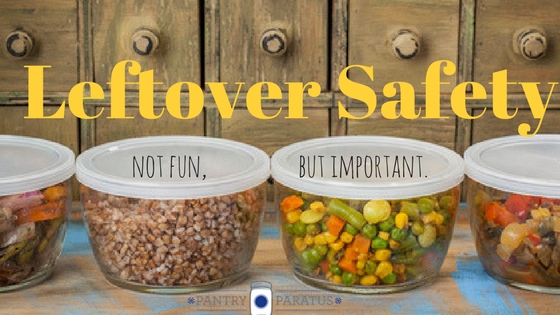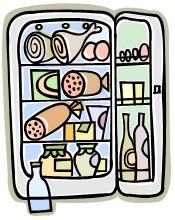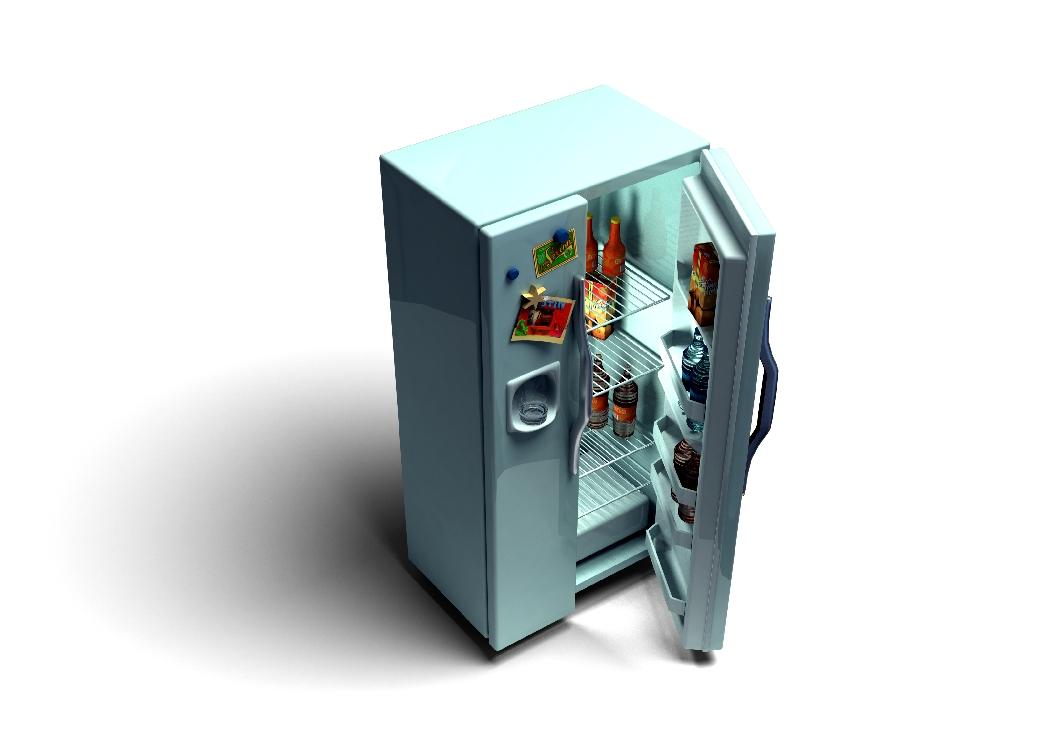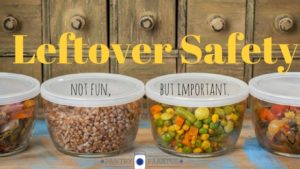
Perhaps the contents of your fridge look a bit like mine. It’s Summer BBQ Season! You have some leftover meat, some veggie or chip dip, a paper plate full of random dessert-bits and cookie crumbs, and whatever else left over from, well, who knows… But here is both our tribute to–and a solution for–the leftovers filling the fridge. Let’s make sure they’re getting used, but safely.
Let me recommend that you take 5-10 minutes today and do a fridge check for leftover safety!
Step 1: Refrigerator Temperature
This knob occasionally gets bumped, and so do a quick visual to ensure that you have your fridge set for 40˚F or colder. You can pick up an appliance thermometer cheaply at many hardware stores, and this will give you a more accurate read than the older refrigerator’s thermostat. If you have any questions as to the thermostat’s accuracy, you will save time and money in the long-run by purchasing one of these.

Step 2: Check every container
Open every container. Look at it and yes—make grandma proud and even smell it. Do you faithfully use plastic storage containers, just place plastic wrap over the dish, or do you recycle the empty yogurt containers? Please make sure that whatever your method, you are using food-grade plastics (if you use plastics at all). I used to do the recycled container thing, but found that we forgot too many leftovers, not realizing they were in there! That’s great for your third grader’s science project, but not so good for the mashed potatoes. So just open each container, shelf by shelf, to verify. Pull out the sharpie if you need to, and know what you have.
How long has that been in there? If you have to guess, it’s probably longer than you think. If you have more food after that meal than what you think you’ll eat within four days, you need to immediately freeze it (or some things, dehydrate, like leftover vegetables, for instance).
Step 3: Create a menu featuring leftovers
This is gourmet leftover cuisine at its’ finest! Get unconventional—a breakfast burrito from the mexican casserole. Try making pancakes out of leftover oatmeal. Possibilities abound. If you plan a menu, you avoid that one random item that nobody wants to eat by itself.
Another adventurous option would be to find your favorite internet recipe website (such as: www.allrecipes.com for example) and punch in the list of leftover candidates in the search bar for a potentially never-before-conceived dinner option.
Step 4: Cook and serve
We had the unfortunate habit in years past to just pop the whole container into the microwave for a snack or side dish. A few problems (and I’d prefer to avoid the microwave controversy altogether, if I may):
1) Is the container you are using—even if considered food safe—is it microwave safe?
2) Are you simply heating the whole container without consuming all of it? If so, you now will have multiple re-heats for that same food item. This further diminishes the quality.
3) The centers of microwaved foods do not reach the same temperature as the surface area, so when you feel the food as warm or hot to the touch, you might be surprised with a cold bite in the middle. To safely eat reheated foods, though, it must reach a temperature of 165˚ F in the center.
Here is my suggestion: if you’ve created meal menus based on those leftovers, it will be more convenient in most cases to use your oven or stove top, which will result in more even temperatures in the food. If you do choose to use the microwave, please use a thermometer in the center of the food.



We’ve had what my kids called fear factor night. LOL I’d pull out all the bits of leftovers. Fix plates and cover them up. Each person had to pick a plate. You never know what you get!